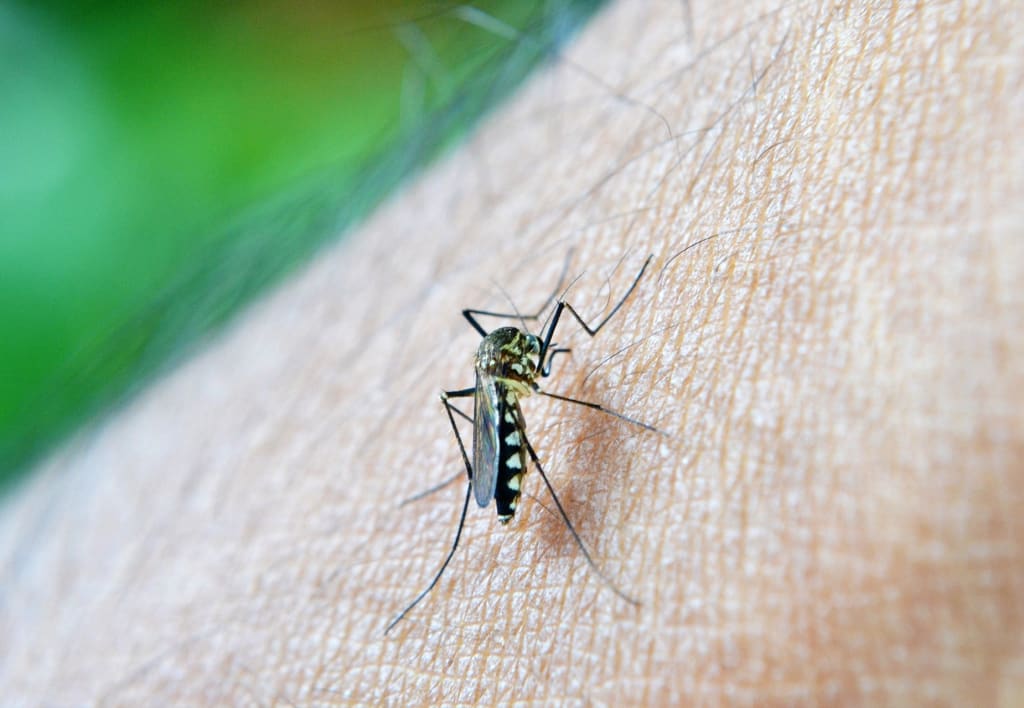
The nation, known for its high population density, is currently grappling with its most severe outbreak to date. The death toll has surpassed 1,500, and hospitals are overwhelmed with patients.
Upon entering the dengue ward at Mugda Hospital in Bangladesh's capital, Mosammat Mayna is overwhelmed with sadness and anxiety. Despite only working as a cleaner for a month, the 23-year-old's employment was secured due to the tragic passing of her sister, Maria Ratna, who also worked as a cleaner in the same ward and succumbed to dengue fever.
Mayna informed Al Jazeera that her sister had tirelessly worked for several months during the dengue outbreak of this year and unfortunately contracted the disease. Following her sister's demise, the hospital authority extended an offer to me for her position," Mayna revealed.
"Although Ratna's death had deeply devastated our family, I accepted the offer despite feeling immense fear as I was currently unemployed."
Bangladesh is currently experiencing its most severe dengue outbreak ever, with hospitals overwhelmed and the death toll on the rise. On a single day last Wednesday, the country recorded 24 deaths, the highest number in a day, due to this mosquito-borne disease.
Although dengue does not spread directly from person to person, mosquitoes that bite infected individuals can become carriers and transmit the disease to others they bite. This makes places with a high concentration of dengue patients, like the hospital where Mayna works, particularly dangerous for those who have not yet been infected.
Health experts are concerned because dengue typically subsides in the South Asian region when the annual monsoon rains cease by the end of September.
According to the government's Directorate General of Health Service (DGHS), as of Monday, a total of 301,255 dengue cases have been reported in Bangladesh this year, resulting in at least 1,549 deaths, including 156 children ranging from newborns to 15 years old.
The number of deaths this year is approximately five times higher than last year's total of 281 fatalities, which was the highest in a single year in Bangladesh's history until this outbreak. The previous highest number of cases in a year, 101,354, was reported in 2019.
Dr. Mohammed Niatuzzaman, the director of Mugda Hospital, expressed his astonishment at the scale of this dengue outbreak, stating that patients were coming in from all parts of the densely-populated country. He also noted that it is highly unusual to see such a large number of dengue patients in November.
A significant outbreak with epidemic characteristics
Previously, outbreaks of dengue were primarily limited to densely populated urban areas like the capital city of Dhaka, which is home to over 23 million people. However, experts have noted that this year the disease has spread to every district, including rural regions.
According to data from the Directorate General of Health Services (DGHS), 65 percent of the reported cases this year originated from outside of Dhaka. This marks the first time that the capital has had fewer cases compared to the rest of the country.
Sohaila Begum, who hails from the southern district of Patuakhali, brought her 11-year-old daughter to Mugda Hospital as she had been suffering from a high fever for over a week. Due to the unavailability of beds, they are currently staying in the hospital corridors.
"When her fever worsened, doctors at the district hospital advised us to immediately transfer her to a reputable hospital in the cities," she informed Al Jazeera, mentioning that her daughter's condition has improved.
"We came to Dhaka, but now we are facing financial difficulties. Everything is incredibly expensive here. If we stay any longer, we will encounter further troubles."
According to Nuruzzaman, the severity and pattern of dengue have worsened, making it a serious crisis. He believes that the government should have declared it a public emergency earlier. However, government officials argue that they have taken necessary measures to control the spread of dengue and that declaring it a public emergency would not have made much difference.
Dr Mohammad Robed Amin, director of noncommunicable disease at DGHS, stated that the health ministry allocated an emergency budget to fight the outbreak and instructed all government hospitals to open special dengue wards in August. However, he also acknowledged that the country's healthcare system has limitations due to its large population, making it difficult to ensure healthcare and treatment for all.
Amin highlighted that there has been an unusually high number of deaths this year due to various factors. He emphasized that the primary reason for this is the significant dominance of the Den-2 type strain of dengue among the affected individuals.
Amin stated that in recent years, Bangladesh has predominantly experienced Den-3 type strains, leading to the development of immunity among the population. However, this year, more than 75 percent of patients have been diagnosed with Den-2, and almost all the fatalities were caused by this specific strain. Amin further mentioned that various studies have indicated that the outbreak of Den-2 becomes more severe when it follows years of Den-3 prevalence.






Comments (2)
Dengue is so dangerous for us when it comes than many more people's died.
This is great work you can also join my friends and read what i have just prepared for you.